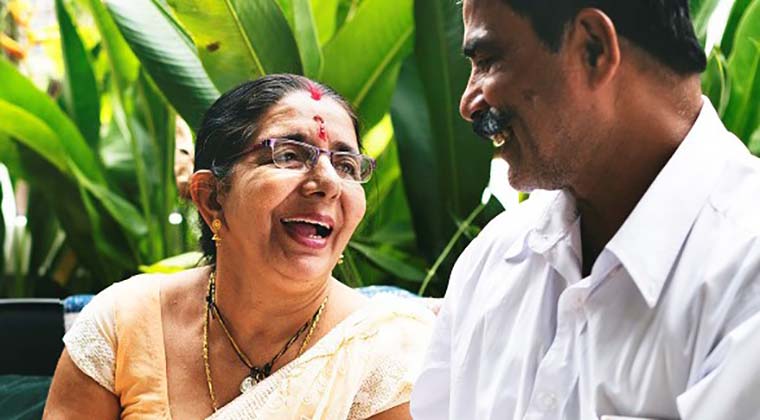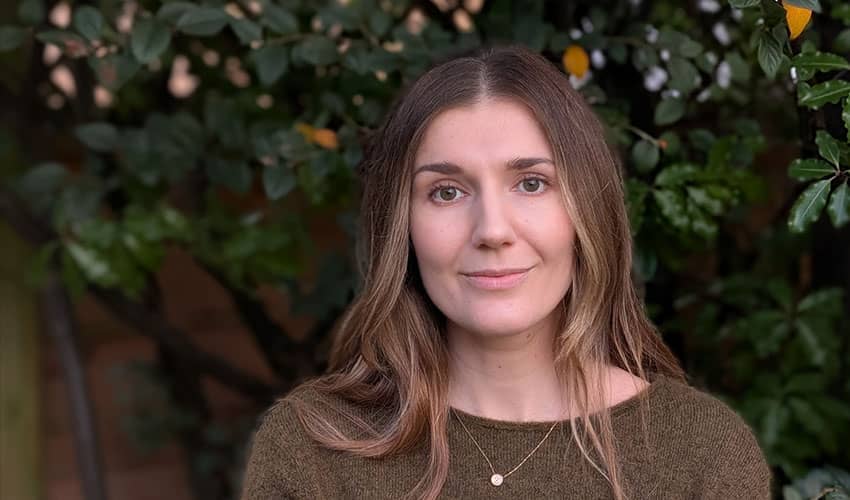New toolkit launched to improve dementia care for South Asian people

People living with dementia from South Asian communities will benefit from improved culturally sensitive support, thanks to a new online toolkit launched by universities and charities.
The toolkit hosted by the Race Equality Foundation will provide enhanced care for members of South Asian communities – many of whom receive significantly less effective dementia care from statutory services compared to their counterparts from White British communities[i].
People from South Asian communities are at greater risk of developing dementia but are less likely to access all points of the care pathway – and more likely to present in crisis and/or at a later stage. They are more likely to face barriers including a late or missed diagnosis, reduced access to treatments, and inappropriate or inadequate support coupled with problems caused by language barriers. They often rely on local, community-led organisations for support.
Alarmingly, the number of people from South Asian and communities with dementia is expected to increase sevenfold by 2051, due in part to inequalities in service provision and the increased risk of other health factors associated with dementia. For White British people, the rise is expected to be more modest – doubling over the same time period.
Combatting the current one-size-fits-all model, the South Asian Dementia Pathway Toolkit (ADaPT) aims to provide more accessible, tailored resources enabling services to provide more culturally appropriate care. Designed to address the uphill struggle that many people from South Asian backgrounds face, the toolkit includes short films, animations, awareness raising materials, assessments and post-diagnostic support – all of which have been culturally and linguistically adapted for people from South Asian communities.
To ensure the toolkit was designed to meet the needs of these communities, public participants from South Asian communities (along with staff from voluntary and statutory services) were asked to share their experiences and feedback about the current level - or lack - of support and to identify what more was needed.
The project was jointly led by researchers from the University of the West of England (UWE Bristol) and the University of Bradford, with other collaborators including the Race Equality Foundation, the Dementia Alliance for Culture and Ethnicity and NHS Bristol, North Somerset and South Gloucestershire CCG, as well as researchers from the universities of Bath and Wolverhampton. It was funded by the National Institute for Health Research, under its Research for Patient Benefit Programme, and has been launched in Dementia Action Week.
Professor Richard Cheston, an expert in dementia research at UWE Bristol, said: “Many people from different south Asian communities receive their diagnosis at a later stage, often when they are in crisis, and when they do use these services then they tend to be less satisfied with the care they receive. In essence, the services have little flexibility and are often designed around assumptions about who will use them, which means that people who don’t fit into these assumptions are at a disadvantage. One contributor described them as ‘Caucasian-centric’.
“The website has been produced from reviews of literature and research but also interviews and focus group workshops carried out with 90 people either affected by dementia and who are from different South Asian backgrounds, or who have provided services to these communities.”
Dr Sahdia Parveen, a Senior Research Fellow at the University of Bradford and the study’s co-lead, said: “It is well established that people from South Asian backgrounds living with dementia experience a number of inequalities throughout the dementia care pathway which not only has a negative impact on the person living with dementia but the entire family. I am proud that the ADaPT study goes beyond documenting these inequalities and aims to address and challenge inequalities through an online toolkit of culturally sensitive resources aiming to improve the dementia care pathway from dementia awareness to post diagnostic support for families. The resources are not only ‘evidence based’ but have been evaluated by the very people the toolkit has been designed for: South Asian families and health and social care professionals.”
Jabeer Butt OBE, CEO of the Race Equality Foundation, said: “The powerful stories we heard from South Asian people interviewed in this project sent a clear message about the urgent need for culturally appropriate help. Dementia has been described as a taboo subject in the Asian community and this is just one of the barriers that needs to be broken down to correct inequalities in this area. We hope that this toolkit will be a game changer in the support available to those living with, caring for and working with people with dementia from South Asian communities.”
Dr Karan Jutlla, Dementia Lead at the University of Wolverhampton, said: “Working with our public contributors on this project made powerfully evident the challenges faced by South Asian communities when attempting to access services. Indeed the lack of knowledge of dementia in South Asian communities and lack of culturally inclusive care has led to a large proportion of people not accessing services. Not only will this toolkit help commissioners, stakeholders, service managers and health and social care professionals provide better support for South Asians living with dementia but, also provides resources for South Asian families. One of our public contributors described the toolkit as ‘shining a torch for people who have been scrambling around in the dark’ as it describes an understanding of the dementia care pathway and evidenced based resources and interventions. We hope that this toolkit will provide better outcomes for a hitherto neglected but growing part of our British community.”
[i] South Asian older outpatients are less likely to achieve timely access to secondary healthcare dementia diagnostic services, after referral, compared to white British outpatients in the United Kingdom.
Ogliari, G., Turner, Z., Khalique, J., Gordon, A. L., Gladman, J. R., & Chadborn, N. H. (2020). Ethnic disparity in access to the memory assessment service between South Asian and white British older adults in the United Kingdom: a cohort study. International Journal of Geriatric Psychiatry, 35(5), 507-515.
Further information about the inequalities and the ADaPT project.
Related news

16 February 2026
UWE Bristol researchers awarded grant to explore impact of asset recovery on offenders
UWE Bristol academics have been awarded funding to explore of the impact of asset recovery on deterring offender behaviour and disrupting crime networks.

10 February 2026
Work by UWE Bristol lecturer features in Government’s National Cancer Plan
Work by a UWE Bristol academic has been included in the Government’s National Cancer Plan.

23 January 2026
On-demand minibus services beneficial in rural areas but face financial challenges, trials suggest
Trials of ‘demand responsive transport’ minibus services boosted connectivity for people in rural and suburban areas, according to a new report produced by UWE Bristol researchers.

18 December 2025
UWE Bristol professor appointed National Institute for Health and Care Excellence CEO
Jonathan Benger CBE, Professor of Emergency Care at UWE Bristol, has been appointed as the new chief executive officer of the National Institute for Health and Care Excellence (NICE).

17 December 2025
Findings revealed from first UK study into experiences of mothers who are survivors of rape pregnancy
UWE Bristol academics have revealed the findings of the first UK-based study of the experiences of mothers who are survivors of rape pregnancy.

11 December 2025
Social media influencer work is far more demanding than it looks, research finds
A study exploring the mental health impacts of social media influencer work has revealed that life online is far more demanding than it appears.

25 November 2025
UWE Bristol experts join film Q&A exploring music and melodrama
Academics will take part in the Cary Comes Home Festival, with a post-screening Q&A exploring music, melodrama and emotional storytelling in classic cinema.

17 November 2025
Urgent reform needed to support ambulance-delivered end of life care, study finds
More than three quarters (78 per cent) of paramedics sometimes fear doing the wrong thing when caring for people in the last year of life, new research has found.

13 November 2025
Bristol’s screen industry experiences “boom-and-bust cycle” after post-pandemic recovery, new research from UWE Bristol finds
New research from UWE Bristol provides detailed insight into Bristol's screen sector.

13 November 2025
New AI research to revolutionise animal welfare
A UWE Bristol research project will combine behavioural science and AI to create technology that understands not only what animals do, but how they feel.

10 November 2025
Lessons from Low Traffic Neighbourhoods will drive better public engagement, study finds
Lessons from Low Traffic Neighbourhoods have informed a new toolkit to improve engagement with the public on challenging local street issues.

06 November 2025
First-of-its-kind study aims to help more people spend their final days at home
A new study will explore how architectural design could support end-of-life care in domestic settings.






